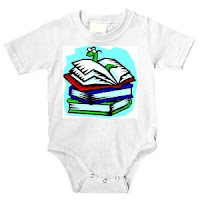 Fantasyland has long been the realm of fairy princesses, knights, wizards, dragons and unicorns, fairly exclusively reflecting a Northern European model. J. K. Rowling was good enough to include Kingsley Shacklebolt, Dean Thomas, and Cho Chang (whom the movies gave a delightful Scots accent) in the Harry Potter saga, letting us know the wizarding world was not exclusively Caucasian. But lately fantasy and sci-fi have been quietly expanding the imaginary universe to reflect many more of the colors our students come in. Many more stories are suggesting that the 'chosen one' who saves the world, the boy who is knighted, the brave princess who protects her people -- even vampires, werewolves, and demon hunters -- can come in a variety of hues. Imagination is colorblind. And, of course, Disney wants to sell princess costumes to every little girl! But while culture is important in the realistic setting, the constructed
settings of fantasy do not necessarily tie colors we recognize to
cultures we know.
Fantasyland has long been the realm of fairy princesses, knights, wizards, dragons and unicorns, fairly exclusively reflecting a Northern European model. J. K. Rowling was good enough to include Kingsley Shacklebolt, Dean Thomas, and Cho Chang (whom the movies gave a delightful Scots accent) in the Harry Potter saga, letting us know the wizarding world was not exclusively Caucasian. But lately fantasy and sci-fi have been quietly expanding the imaginary universe to reflect many more of the colors our students come in. Many more stories are suggesting that the 'chosen one' who saves the world, the boy who is knighted, the brave princess who protects her people -- even vampires, werewolves, and demon hunters -- can come in a variety of hues. Imagination is colorblind. And, of course, Disney wants to sell princess costumes to every little girl! But while culture is important in the realistic setting, the constructed
settings of fantasy do not necessarily tie colors we recognize to
cultures we know.Adam Rex, in The True Meaning of Smek Day" gives us a young heroine of mixed parentage.Though she expresses her annoyance at people who wonder why she and her mother are different colors (duh -- you might want to check your biology textbook) she is more absorbed in her roadtrip with her new alien friend, J Lo, who has racial identity issues of his own.
In The Golden Hour by Maiya Williams two sets of siblings from Caucasian and African-America families time-travel together to save another sibling who has become trapped in the French Revolution by mistake. The new friends had not touched on racial issues at all until they had to figure out how to keep a low profile in 1790s Paris -- and issues of class, servitude, and slavery are introduced.
The Hunger Games trilogy includes young people of all colors. In fact, the movie created quite a stir when speed reading fans loudly complained about the casting of a young black actress as Rue, which is just as the book described but not not, perhaps, as they had imagined. Other readers were unhappy that a large and (initially) aggressively mean male character was written as black, insisting that this was stereotyping. But the young, whipsmart, but very sweet character of Rue did not read as 'black' in some readers minds? Hmm, damned if you do. . .
Stealing Death by Janet Lee Carey is set in a fantasy universe that includes elements of various African as well as Aboriginal cultures. The dark-skinned native population includes a range of classes from the wealthy & powerful to nomadic people living close to the earth. Our hero is the interloper: a white refugee from a war-torn northern country whom the natives expect to be feckless, dirty and unskilled. The white kid gets to be the failed, exploited sharecropper.
The delightful and funny Chitty Chitty Bang Bang Flies Again by Frank Cottrell Boyce stars an interracial couple and their children, not because there's any plot point that revolves around this issue, but just because such families are typical, normal, expected, and unremarkable. So why not?
Not every character should be expected to be an example of his or her race, to represent a culture, to be a token, or indeed be anything but a complete and unique character of his or her own. It is nice to see authors embracing characters whose hues are as varied as their individuality. Just because they are.







